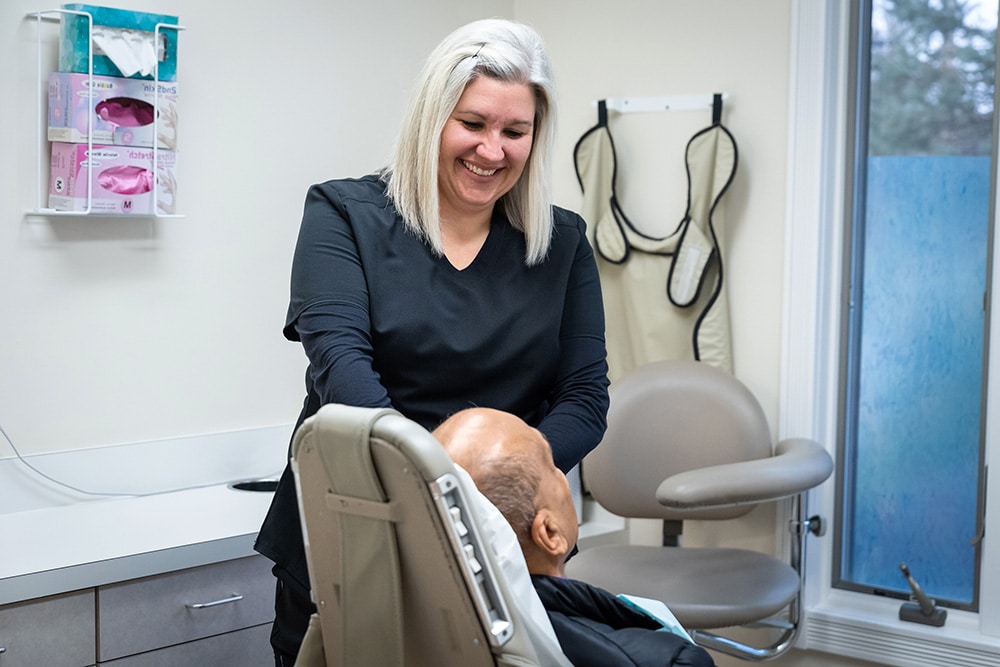Visit Our Dentist in Midland, Michigan
Dental Care For Each Stage Of Life
When it comes to finding a reliable dentist, Knight Dental Care stands out as a top choice for general dentistry catering to patients of all ages. Dr. Knight and the dedicated team at Knight Dental Care offer comprehensive dental services to address the oral health needs of the entire family. From routine check-ups and cleanings to addressing common dental issues, such as cavities and gum disease, the practice emphasizes personalized and compassionate care for patients of all ages.
Knight Dental Care aims to promote long-term oral health and wellness within the Midland community by focusing on preventive oral care and patient education. Whether it’s a child’s first dental visit or an adult seeking routine care, Knight Dental Care’s commitment to quality and family-oriented dentistry makes it a trusted choice for those seeking a dentist in Midland, Michigan.
Dental Exams & Cleanings
Fluoride Treatment
Dental Sealants
Mouth Guards/Night Guards
TMJ Therapy
Sleep Apnea Treatment
Nitrous Oxide Sedation
Emergency Dentistry
Why You Should See Your Dentist in Midland, Michigan, Regularly
Regular teeth cleanings and check-ups are essential for maintaining optimal oral health, and at Knight Dental Care in Midland, Michigan, we prioritize the importance of these routine visits. Seeing your dentist for regular check-ups and cleanings allows for the early detection and prevention of dental issues, such as cavities, gum disease, and oral infections.
Professional cleanings performed by our skilled hygienists can effectively remove plaque and tartar buildup, which are often difficult to eliminate through regular brushing and flossing alone. Additionally, during these visits, Dr. Knight can conduct thorough examinations to identify any potential concerns and provide personalized recommendations for at-home care. By staying consistent with these preventive appointments, patients can enjoy the benefits of a healthy, confident smile while reducing the likelihood of more extensive dental procedures in the future.
Regular Teeth Cleanings and Check-Ups Could Save Your Life
Regular teeth cleanings and check-ups not only contribute to good oral health but can also have a significant impact on overall well-being. Research has shown that maintaining oral health through regular dental visits is linked to a lower risk of developing certain systemic conditions, including heart disease and diabetes. Furthermore, during routine examinations, dentists can also screen for oral cancer, offering an opportunity for early detection and timely intervention. By prioritizing regular teeth cleanings and exams, patients not only invest in their oral health but also in their overall systemic health, potentially leading to a longer and healthier life. Call our top-rated dentist in Midland, Michigan, today to turn your oral health around!

Putting Your Best Smile Forward
If you are looking for a dependable Midland dentist, call us today. We can schedule an appointment to create a personalized treatment plan and transform your smile!
